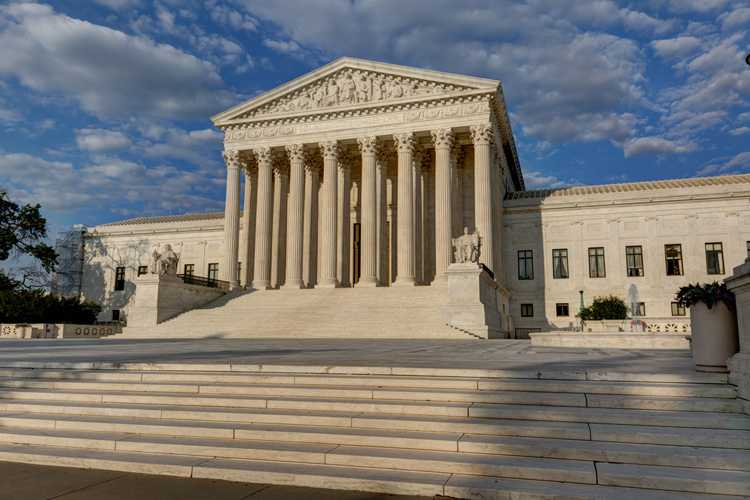Texas’ 6-week abortion ban takes effect with no Supreme Court intervention

Image from Shutterstock.
The U.S. Supreme Court failed to take action on an emergency application to block Texas’ near-total ban on abortions, allowing the most restrictive abortion law in the country to go into effect Wednesday.
The Texas law, known as SB 8, prevents abortions after a doctor detects a fetal heartbeat, typically at about six weeks of pregnancy. It contains an exception only for medical emergencies but not for rape or incest.
As part of the law, private citizens inside or outside Texas can sue abortion providers and anyone else who helps a woman obtain an abortion and potentially be awarded at least $10,000 per illegal abortion if they are successful.
The New York Times, CNN, Politico, NPR and the Washington Post have coverage.
The Center for Reproductive Rights, Planned Parenthood, the Lawyering Project, the American Civil Liberties Union and other groups asked the Supreme Court on Monday to intervene after the 5th U.S. Circuit Court of Appeals at New Orleans denied their emergency motions to block the law while legal challenges moved through the court.
They had filed a federal lawsuit in July against people who could be involved in enforcing the law, such as every state court trial judge and county clerk and leaders of the Texas Medical Board and the Texas Board of Nursing.
“Patients will have to travel out of state—in the middle of a pandemic—to receive constitutionally guaranteed health care. And many will not have the means to do so,” said Nancy Northup, president and CEO of the Center for Reproductive Rights, in a statement Monday. “It’s cruel, unconscionable and unlawful.”
Republican Texas Gov. Greg Abbott signed SB 8 into law in May. No other six-week ban has been allowed to go into effect, CNN reports.
The ACLU said on Twitter after it went into effect Wednesday “access to almost all abortion has just been cut off for millions of people. The impact will be immediate and devastating.”
“What ultimately happens to this law remains to be seen, but now through their inaction the justices have let the tightest abortion restriction since Roe v. Wade be enforced for at least some period of time,” said Steve Vladeck, a Supreme Court analyst at CNN and a professor at the University of Texas School of Law.
In May, the Supreme Court agreed to hear a case involving the constitutionality of Mississippi’s ban on most abortions after 15 weeks of pregnancy. Justices will consider one question in Dobbs v. Jackson Women’s Health Organization: whether all previability prohibitions on elective abortions are unconstitutional.
It is a direct challenge to Roe, the 1973 decision that prohibits states from banning abortions before a fetus is viable.



